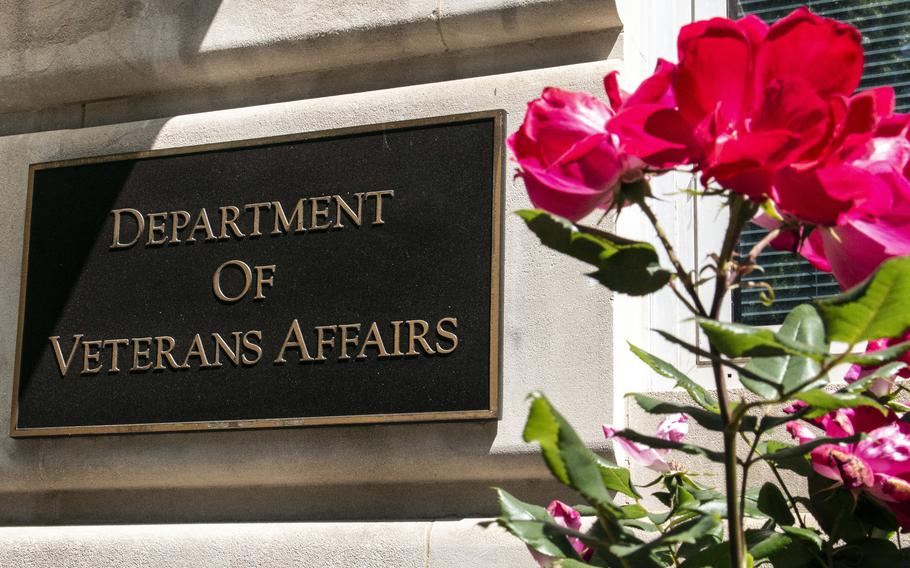
The Department of Veterans Affairs headquarters in Washington, D.C., is shown in this undated file photo. (Stars and Stripes)
The Department of Veterans Affairs plans to waive copayments for eligible American Indian and Alaska Native veterans for visits to community-based urgent care facilities beginning this month.
The modification would waive copayments incurred after Jan. 4, 2022, provided the eligible veterans have submitted proper documentation, the department said in a news release Tuesday.
The waivers would become effective after a 30-day public comment period following publication on Wednesday of the proposed rule change, the VA said.
The waiver, however, would be limited to three visits to community-based urgent care facilities in any calendar year, the VA said.
“Follow-up care provided by a VA-authorized primary care provider would be exempt from copays,” the news release stated.
More than 140,000 American Indian and Alaska Native veterans could be eligible for the waiver, according to VA spokesman John Santos.
If finalized, the waiver would be retroactive to Jan. 5, 2023, and eligible veterans would be reimbursed for any copayments made between then and implementation of the new rule, the VA said.
Veterans would be required to submit official documentation to receive that reimbursement, the VA said.
Copayments for VA medical care vary based on the priority group that a veteran is in and the care that that individual receives, Santos said in an email Tuesday.
“Priority groupings are determined by a number of factors such as military service history, disability rating, income level, and other VA benefits the Veteran may be receiving,” he said.
The copayment for a visit to urgent care for minor illnesses and injuries is up to $30 for certain priority groups, according to the VA’s website.
The copayment for seeing a primary care doctor is $15 for some veterans, the website states.
Copayments for specialty services, such as ophthalmologists or cardiologists, and specialty tests, such as MRIs, can be as much as $50.
“American Indian and Alaska Native Veterans have played a vital role in the defense of the United States as members of the Armed Forces for more than 200 years,” VA Secretary Denis McDonough said in the news release. “This rule makes health care more accessible and allows us to better deliver to these Veterans the care and health benefits that they have earned through their courageous service.”
The rule change is part of changes required by the Isakson and Roe Veterans Health Care and Benefits Improvement Act of 2020, which was signed into law in early 2021.
The sweeping law carried 32 provisions that expanded various GI Bill programs and addressed a range of veterans’ issues such as homelessness, access to care for women and Native Americans, toxic exposure and the coronavirus.